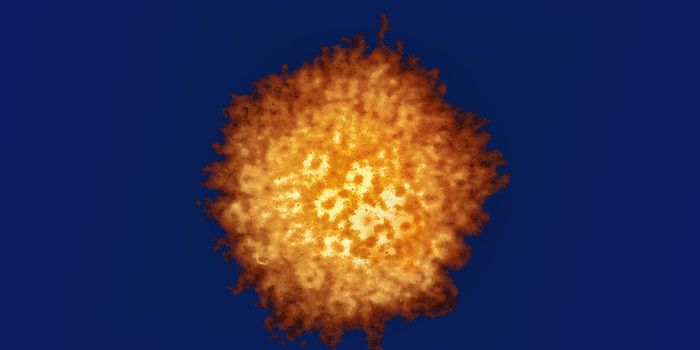Levels of One Molecule, LAC, can Diagnose Depression
Depression is a broad term for a variety of moods, behaviors, and disorders that are caused by different things. It can be hard to classify depression in patients, and without a conclusive diagnostic test, treating the problem is challenging. A new study suggests, however, that one molecule, carried in the blood, can help determine what kind of depression a person has. These findings have been reported in the Proceedings of the National Academy of Sciences (PNAS).
This research was conducted by Bruce McEwen and Carla Nasca, scientists at Rockefeller University, and Natalie Rasgon, of the Stanford University School of Medicine. They found that individuals with major depressive disorder (MDD) have low levels of acetyl-L-carnitine (LAC) in their bloodstream. This work could help improve therapeutics for MDD.
Normally, LAC functions in the brain, helping control metabolic processes and promoting the expression of certain genes. One of those genes regulates the level of glutamate, a critical neurotransmitter that sends signals in the brain, affecting a wide variety of brain functions.
Using animal models, McEwan and Nasca have investigated the connections between mood disorders and LAC. They have shown that LAC can relieve symptoms of depression in mice; the chemical repairs damage caused by an excess of glutamate. Another rodent study showed that LAC reduced behaviors associated with depression as well as lowering neural dysfunction linked to stress in the medial amygdala, a region that may function in social interaction. Because this work showed that LAC probably plays a role in depression, they wanted to see if it was similar in people.
"Our laboratory has a long history of studying the effects of stress on brain circuits implicated in depression," said McEwen. "When Carla brought her initial LAC findings to the lab, this project seemed like an ideal way to combine our expertise with that of clinical researchers at Weill Cornell, Mount Sinai and Stanford."
In this study, they found low LAC levels in people that have MDD, and that patients with depression that had an earlier onset or was more severe had the lowest levels of LAC. It was also low in people that had experienced trauma in childhood, especially women.
"In patients with depression, something is causing a problem in the mechanisms related to the biology of LAC," explained Nasca. "And, surprisingly, the deficiency in LAC is even stronger in patients that don't respond to standard antidepressants."
This work suggests that assessing LAC levels in patients with mood disorders could be a good way to diagnose MDD, and can show whether the depression is severe and linked to childhood trauma.
"These findings should motivate research into the action of LAC on glutamate function and behavioral states," said McEwen. "Additional research into other novel biomarkers to more precisely pinpoint MDD diagnosis could ultimately lead to a different way of thinking about treatments for MDD and other disorders."
"We are excited about this first translational study in humans, and poised to build on our results to identify new treatment targets in the brain,” concluded Ragson.
The video above features Carla Nasca discussing research on PTSD.
Sources: AAAS/Eurekalert! Via Rockefeller University, PNAS









